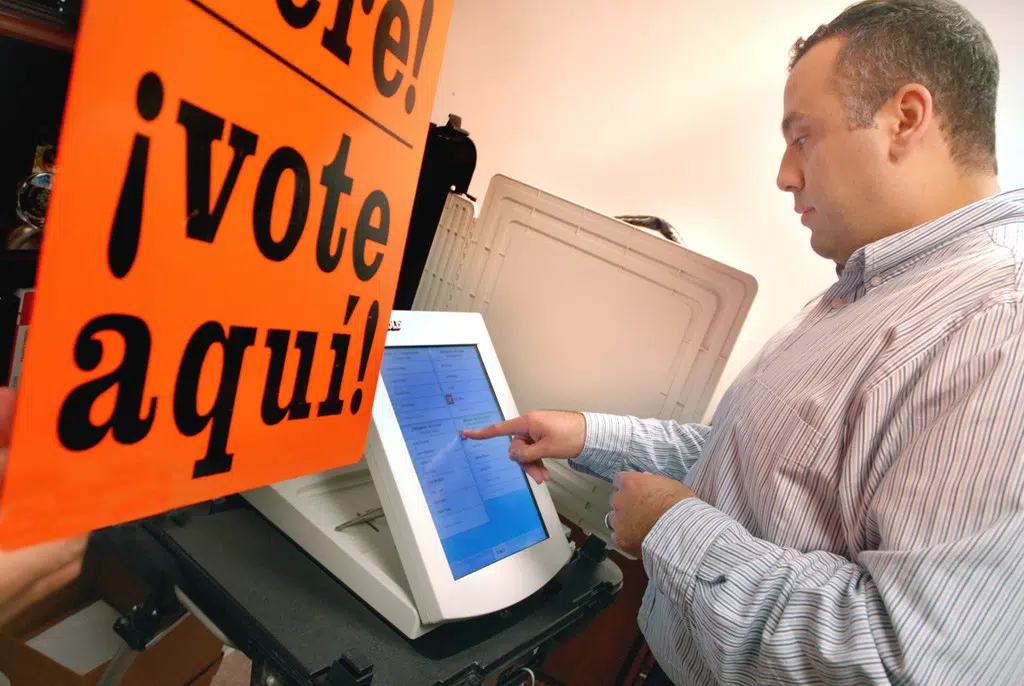WASHINGTON – The conventions for the two major political parties in the United States have wrapped up but the fight for votes is nowhere near over.
In an election that promises to be tight, what’s clear is that both parties are emphasizing their respective support of Latinos in the United States. One party showed off its Latino backing with the voice of Republican Sen. Marco Rubio of Florida while the other featured the Democratic mayor of San Antonio, Julian Castro, as a keynote speaker. Those were just two in a long lineup of Latino speakers prominently featured by both sides.
What’s foremost in the minds of some is not the immediate effect of the Latino vote in the 2012 election but its impact beyond. Line up the Republican and Democrat platform side by side, and Latinos in the United States would tend to check off more boxes favorable to the Republicans’ most prominent conservative views, said Gabriel Pilonieta Blanco, editor of El Tiempo Hispano, a bilingual, Spanish-English newspaper in the Philadelphia area.
Since they tend to be practicing Catholics, “many (Hispanics) are against abortion and are pro-life,” Pilonieta said. They don’t tend to favor same-sex marriage either, he added.
However, Pilonieta said, it’s rare to encounter an active Republican Latino.
Start talking about immigration and that’s what will get the attention of a Latino voter most of the time, said Pilonieta.
“It adds a lot and creates major sympathy toward (the Democrats),” he said.
Tony Yapias, director of an immigration advocacy group, Proyecto Latino de Utah, in Salt Lake City, said the reason the immigration topic attracts Latinos has to do with the way the party addresses Latinos as a group. At the heart of the issue is whether each major political party makes Latinos feel welcome in their circles, he said.
The Pew Hispanic Center found that among Hispanic voters registered so far in 2012, 42 percent are listed as Democrats, 37 percent as independents and 16 percent as Republicans.
“Democrats have done a 100 percent better job” of treating Latinos as part of this country, said Yapias, who identifies himself as an independent voter.
The Republican Party may have a platform of social issues that appeals to Latinos but the problem is the lack of respect they have shown toward them in this country, even those who are citizens, he said. Take Arizona, for example, said Yapias.
Listen to the rhetoric of Republican Arizona Gov. Jan Brewer, who along with her state’s Maricopa County Sheriff Joe Arpaio, regularly take to the airwaves using language that makes Latinos, even those who are U.S. citizens, feel as if they will be targeted as illegal or undocumented, Yapias said. That doesn’t make anyone feel comfortable, no matter what social issues they may espouse, he added.
“I am very conservative,” said Yapias, a member of the Church of Jesus Christ of Latter-day Saints. “But I tend to watch out for the interest of Latinos.”
He sees himself as being welcomed by the Democrats, even with his conservative views, and tends to support them at the voting booth because of the way they embrace Hispanics, he said.
Though Republican presidential candidate Mitt Romney is a Mormon like him, Yapias doesn’t feel Romney follows the teachings of the church as he does, especially when he is aligning himself with those don’t treat or speak well of Latinos.
“People say, ‘I want a job, I want those who will create jobs but I want to be treated well, too,'” Yapias said.
But that’s not to say he doesn’t favor some Republicans. Yapias supported Chris Cannon in 2008 in his bid for U.S. Representative for Utah’s 3rd congressional district.
“I’m an independent,” Yapias said. “Don’t take my vote for granted.”
And that may explain the growing numbers of independent Latino voters, whom he described as not quite Democrats but not feeling welcomed by the Republicans.
“I vote for those who seek me,” Yapias said, meaning that if a politician wants his vote, he or she must find a respectful way to address Latinos. So far, he sees former Florida Gov. Jeb Bush as the only prominent Republican making a plea to his kin to stop “acting stupid” toward Latinos, Yapias said.
But as the numbers of Latinos adding to the independent roster show, it’s a voting bloc that’s complex and that no one can afford to take for granted.
Recently, Pilonieta said, he has heard more grumblings from Latinos about the Democrats’ support for same-sex marriage. He also said he has heard from many Latinos not happy with the Health and Human Services’ mandate and who believe the Obama administration had overstepped its boundaries. They view the mandate requiring most religious institutions to pay for health insurance covering contraceptives and sterilization as a religious freedom issue, he said.



